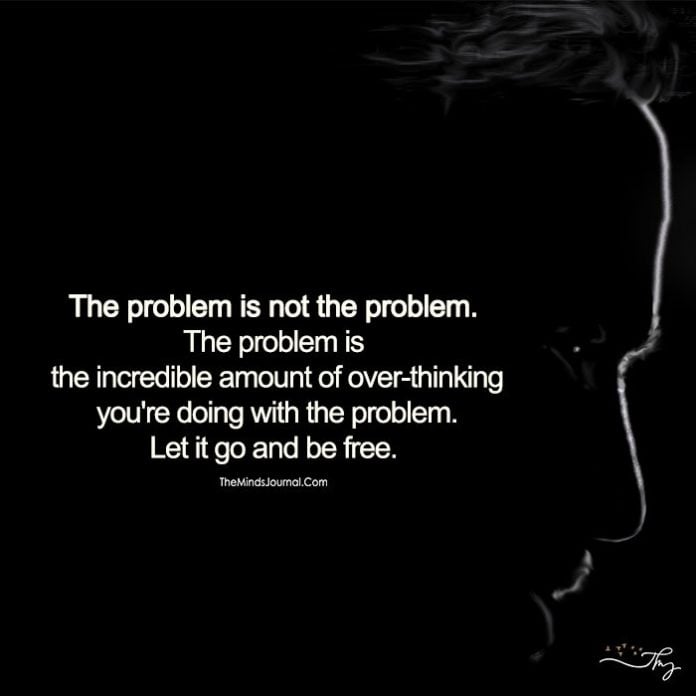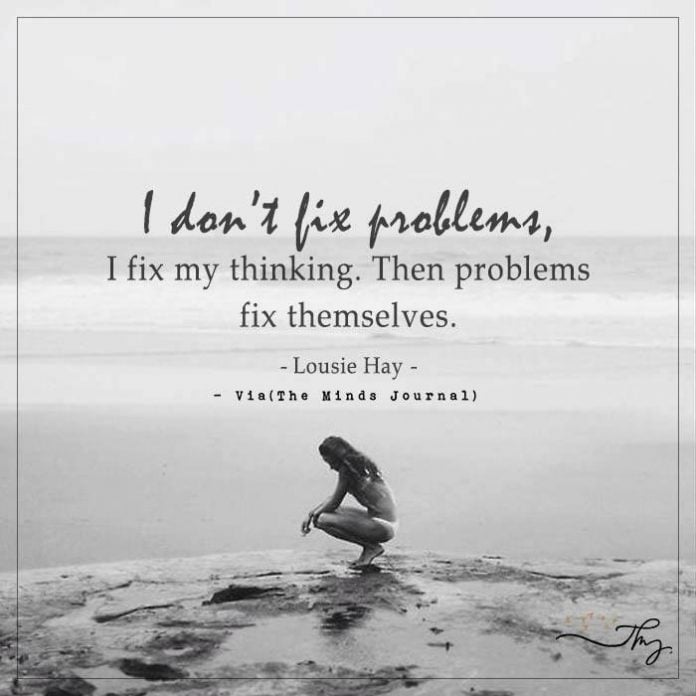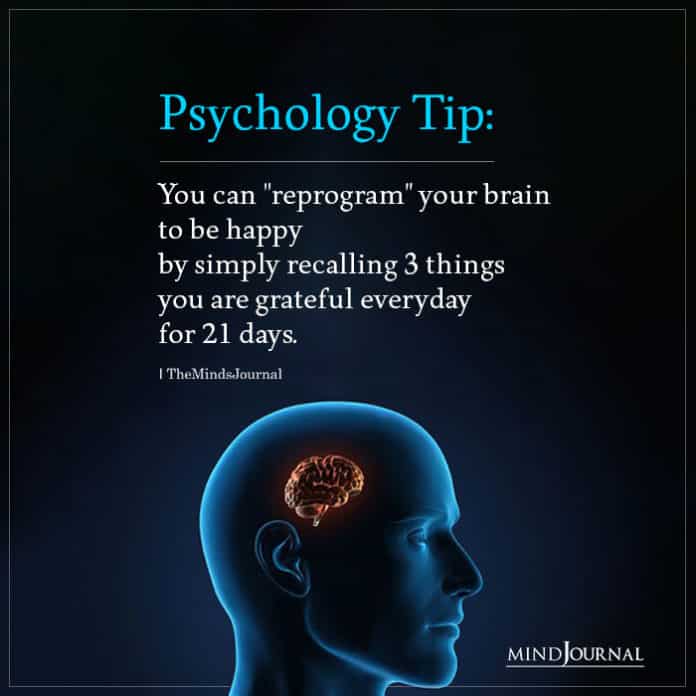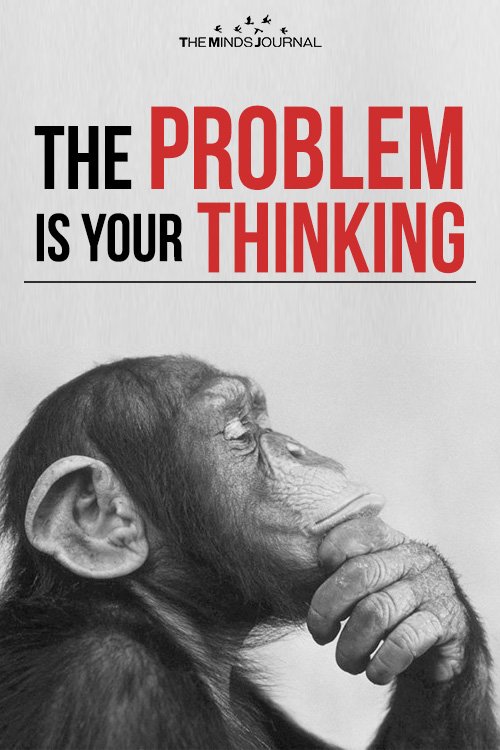Problems are a part of life. But our attitude towards the problem can often make problems seem much bigger and exaggerate their impact in our lives.
Is your attitude the main problem?
“The problem is not the problem. The problem is your attitude about the problem. Do you understand?” – Captain Jack Sparrow, The Pirates of the Caribbean movie series
Most of the time, our attitude towards a problem turns out to be the real problem that leads to difficulties and discomfort in life. All of us face challenges and difficulties in life. However, when we have a negative attitude towards it, we can let our problems seem bigger than they are. This can make us feel overwhelmed and think that there is no way to solve the problem. This can lead to excessive stress, anxiety and even depression in the long run.

However, when we pause and step back for a while, restructure our attitude and look at the situation with a new perspective, we can often find new ways to deal with the issue at hand and feel empowered. This is why, most of the time, the problem is not the real problem. The problem, then, lies more in our vibe, attitude and mindset about how to approach or face the problem. And this is what we need to focus on and fix. By reframing our mindset and taking a new approach we can realize the problem was never a problem at all.
Read also: 5 Simple Steps To Overcome Difficult Situations In Life
It starts with being aware
We often tend to be unaware about things that hold us back in life and prevent us from pursuing and accomplishing our dreams and goals. As we dream big, we tend to feel intimidated. But we fail to realize that the bigger our dream is, the more difficult it will be for us to make it come true. The more we will have to struggle and grind. But we can fix this by bringing our consciousness and awareness into our thoughts, emotions, mentality, attitude and behavior.
The more conscious we become of ourselves, the more awareness we have about the irrelevance of our negative mentality, insecurities, fears and excuses. We have the power to overcome any problem we face or crumble down at the sight of the most inconsequential resistance. We have the choice to change how we see the problem. To alter our mindset and attitude towards the problem. The strength lies within us.
However, as we fail to realize this, we seek validation from others. We look at others to tell us that we can do this. That we can overcome the problem. We look for permission from others around us before we can embark on a journey of personal growth and development. But we fail to realize that we don’t need to seek external validation. All we need is our own permission to not seek permission from others anymore. When we have that confidence, when we stop seeking validation from others, we can finally start changing our attitude and mindset towards the problems life throws at us.
Read also: Why You’re The Real Problem In Your Relationship, Not Your Partner

How to change your attitude towards problems
If you feel overburdened by your negative mindset and wish to develop a more positive attitude towards problems and life in general, then here are a few ways for you to get started.
1. Act purposefully
Before taking action, make sure to think about how it may affect your life and help you accomplish your goals. If it doesn’t really serve your goals in the long run, it’s not worth acting upon. “Aimless activity wastes time and energy,” writes author Geoffrey James.
2. Push yourself beyond your comfort zone
Comfort zone is a place where growth dies. When you are stuck in the same place every day, then it can get very frustrating and depressing. So decide to stretch yourself beyond your own limits regularly.
3. Limit your expectations
Don’t always act expecting the results in a certain way. Life is unpredictable and anything can happen at any time. When you take action based on certain expectations related to the outcome, you set yourself up for disappointment. James adds “Take your best shot but don’t obsess about the target.”
Read also: 6 Challenges You Need To Face To Get Better At Life

4. Accept problems as challenges
“Remember that it is impossible to learn and grow and become a successful person without adversity and difficulties,” explains author and entrepreneur Brian Tracy. It is only by developing the right attitude, you can rise above challenges and get better. Instead of looking at setbacks as a crippling problem, consider them as opportunities to boost your skills and become stronger. Take a look at your actions and think what you can do differently to boost your capabilities and attain success.
5. Don’t take life too seriously
Life is full of challenges. Despite how hard you try, something or the other will go wrong. You will have to fight your way through it to reach greener pastures. That’s how it has always been. So take things lightly and don’t take yourself too seriously. Learn to laugh at yourself, acknowledge your failures and make others feel comfortable around you.
6. Be grateful
Develop an attitude of gratitude if you want to have an attitude to cope with problems in life. Being grateful will enable you to look at the good things in life even when the chips are down. “You must, and should, thank other people for their gifts to you, even if that gift is something as simple as a smile,” writes author Geoffrey James.
Read also: 5 Ways Gratitude Can Change Your Life

Build a positive attitude
The importance of having a positive attitude cannot be overemphasized. Having the right attitude can not just enable you to overcome problems and challenges, but it can help you get out of your own way and be happy and satisfied in life.
Brian Tracy concludes “Resolve to maintain a positive attitude, be cheerful, and resist every temptation toward negativity and disappointment. View a disappointment as an opportunity to grow stronger, and about it to yourself and others in a positive and optimistic way.”
Read also: The Negative Side Of Positive Attitude: How Too Much Of It Can Be Damaging For You











Leave a Reply